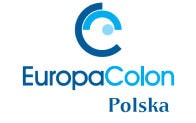The Northern-European Initiative on Colorectal Cancer
NCT00883792
Interventional
Phase 3
Active, not recruiting
NordICC
Colorectal cancer (CRC) is a major burden in western countries. The disease develops from precursor lesions during a long time-interval. Colonoscopy can detect and remove CRC precursor lesions and may thus be effective for CRC prevention. Many national and international health organisations demand evidence from randomised trials to reduce incidence or mortality of the target disease before advocating population-wide cancer screening. However, while colonoscopy screening for the prevention of colorectal cancer is established in the United States and several European countries, no randomised trials exist to quantify the possible benefit of colonoscopy screening. NordICC is a randomised trial investigating the effect of colonoscopy on CRC incidence and mortality. NordICC is a multicentre, randomised trial in Nordic countries, the Netherlands and Poland. A minimum of 66 000 individuals, age 55-64 years, are drawn randomly from the population registries in the participating countries. 22 000 are invited for once-only colonoscopy (2:1 randomisation). Expected work-load with 50% compliance will be 11,000 colonoscopies. At the screening examination, all detected lesions are biopsied and removed whenever possible. The remaining 44 000 individuals (control group) are not offered any screening examination (care as usual).The primary study aims are CRC incidence and CRC mortality after 15 years of follow-up, with an interim analysis after 10 years of follow-up. In an intention-to-treat approach, a risk reduction of CRC mortality of 25% in the colonoscopy screening group compared to the control group is expected after 10 years follow-up, estimating 50% compliance in the screening group.
May 31,2009
All
55 Years
64 Years
55 Years
64 Years
95000

